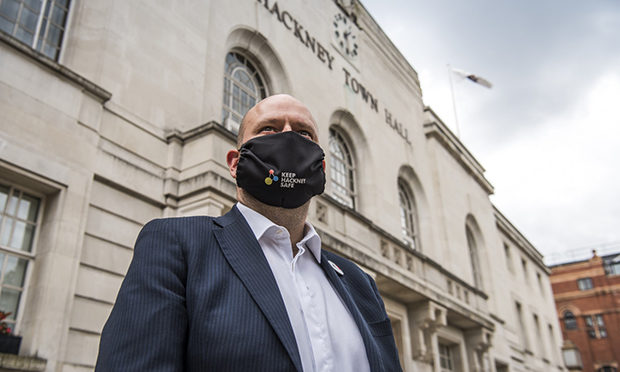Hackney Mayor ‘astonished’ as government refuses Freedom of Information request on school closures

The government has remained tight-lipped in the face of calls from nine London councils, including Hackney, to outline in full the rationale behind its direction at the end of last year that primary schools in some London boroughs should reopen in January.
At the end of December, the Town Hall openly challenged the government to explain the decision, which came after ministers said schools in areas “worst-hit” by coronavirus should stay temporarily closed.
At the time, Hackney had the 30th highest infection rate in the country and was among the top 10 infection rates in London.
Howls of protest from politicians, educators and public health experts were swiftly followed by a government U-turn at the beginning of January allowing local schools to remain closed.
However, the council has now expressed its “astonishment” at its Freedom of Information (FoI) request for the methodology, data and evidence base applied when keeping the borough along with nine others off the list for closures being blocked by the Department for Education (DfE) on a public interest basis.
Hackney Mayor Philip Glanville said: “It’s frankly astonishing that anyone could claim that how ministers are making decisions that affect the health and lives of thousands of children, parents and teachers are not in the public interest.
“I immediately asked the minister to publish the data behind his decision last month, and weeks later families across Hackney are none the wiser about the shambolic and stressful 48 hours they were subjected to by this Government.
“That is not good enough for parents and teachers in Hackney. After not getting replies to our letters, asking questions in meetings and officers seeking answers from the Department for Education, this FoI was a last resort.
“As the Prime Minister says schools may reopen in March, and we can’t see a repeat of this failure in the coming weeks. Gavin Williamson must commit now to being open and transparent about how he will decide which schools will reopen when.”
The Town Hall is now demanding that Williamson’s department publish the data behind decisions on how schools will reopen from the 8 March, pointing to the absence of any published plan or strategy for how the decision will be taken.
In its request, Glanville and Deputy Mayor Anntoinette Bramble asked for the release of the data and evidence base used to make the decision to stagger the return of all London’s secondary school from 18 January (now overtaken by the current lockdown), and how the list of “worst-hit” areas published in December for school closures failed to include Hackney.
According to the DfE’s response, while 23 of London’s 33 boroughs were included in the initial decision to restrict attendance at primary schools on 30 December, all 33 boroughs were added to the list “in light of the rapidly changing situation and after listening to local concern from the remaining boroughs”, with an emergency meeting chaired by Williamson held to reconsider.
The government goes on to say that it used “a balanced approach rather than simple threshold cut-offs and took all factors into account”, focusing in particular on very high rates of infection, particularly high increases in seven-day case rates; and intelligence about pressure on the NHS.
The response also pointed to other “evidence-based objective analysis” produced by the Joint Biosecurity Centre made to inform local and national decision-making, but refused to respond in full to the Town Hall’s request, arguing that the public interest in not disclosing the information outweighs the public interest in its release.
The government further argued that public exposure of what has been requested could “deter from full, candid and proper deliberation of policy formulation and development, including the exploration of all options.”
In a response sent eight days after the mandated time for response the DfE’s FoI Officer of its Coronavirus Response Unit wrote: “Whilst the national lockdown restrictions replaced the contingency framework restrictions that had been active in some primary schools, the contingency framework remains the route by which local restrictions to education would normally be made.
“Such restrictions will only ever be introduced as a last resort and we would not approach the decision lightly or in isolation.
“Intelligence from those closest to the situation on the ground continues to be crucial, and my department work with the relevant local authorities, the Chief Medical Officer, Public Health England and other government departments to ensure our decisions are informed by the available evidence.
“I would like to reassure you that the department will be continually reviewing the restrictions on schools, colleges and universities and will ensure that children and young people return to face-to-face education as soon as possible.”
It is understood that Glanville and Bramble have now written to the DfE to request an internal review of the decision to reject the FoI request.
